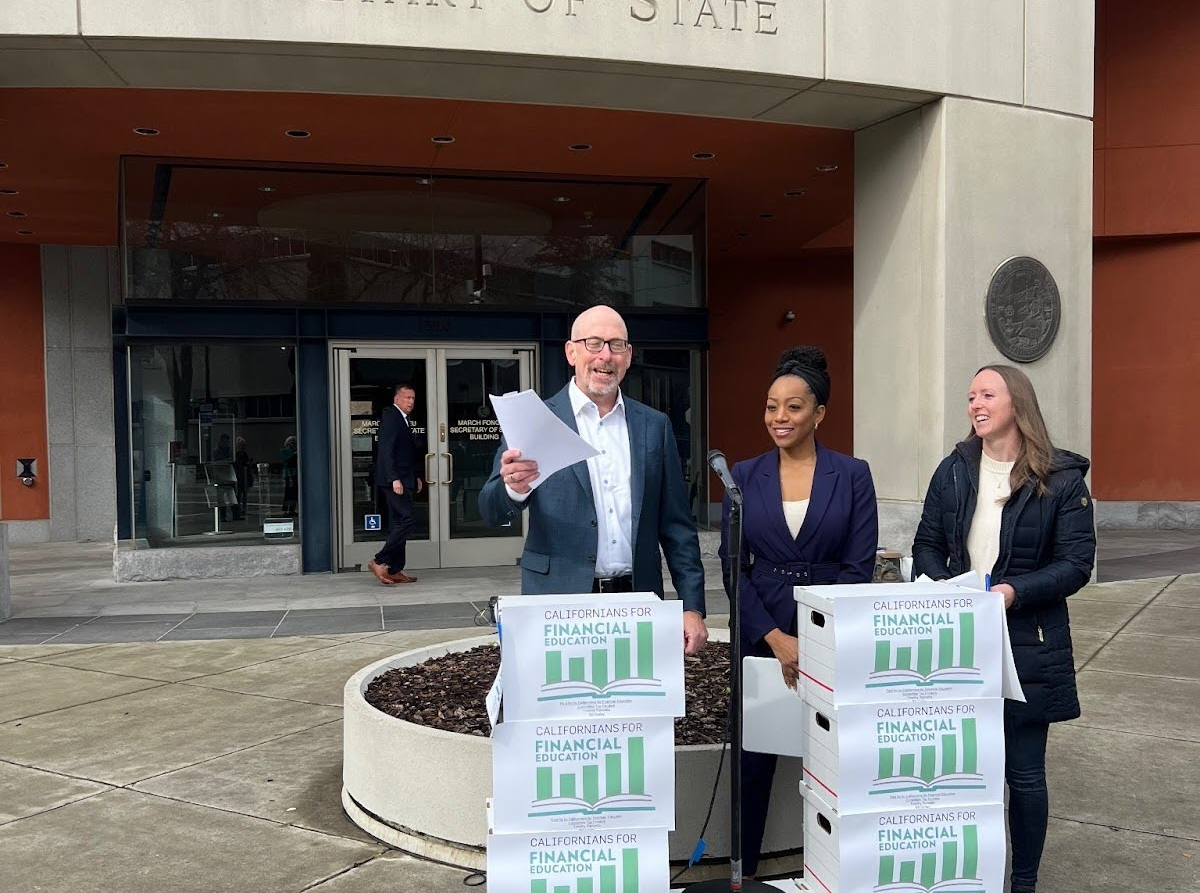Soon, all California high school students will learn about college grants and loans, how tax rates work, the benefits of insurance and how interest high rates can blow your budget when you miss a payment on a credit card.
This week, legislators rushed to pass legislation that would make California the 26th state to require a course in personal finance as a requirement for high school graduation as of 2030-31. A semester of personal finance must be offered in all high schools starting in 2026-27.
“It’s often the students who need financial literacy the most that receive it the least. Parents of low-income students are far less likely to be financially literate themselves, which means they can’t pass that knowledge down to their children,” Kayvon Banankhah, a high school junior from Modesto, said June 19 during testimony at a Senate Education Committee hearing on the bill. “I truly believe this bill is one of the most impactful and feasible ways we can combat wealth inequality in our state.”
Assembly Bill 2927 “will benefit countless future generations of Californians,” said Tim Ranzetta, a Palo Alto marketing and finance entrepreneur and crusader for personal finance instruction. As co-founder of the nonprofit Next Gen Personal Finance, which provides free curriculum and teacher training in personal finance education, he also financed a successful effort to place a nearly identical personal finance initiative on California’s November ballot.
With a written assurance from Gov. Gavin Newsom that he’d sign the bill, Ranzetta agreed to pull his initiative from the ballot Thursday, the deadline for final changes to initiatives.
The bill includes one significant difference, which was a response to arguments that imposing more graduation requirements, along with ethnic studies, another coming requirement, will further limit students’ course flexibility and schedules.
AB 2927 will allow students to substitute personal finance for economics, a semester-long graduation requirement that seniors usually take together with civics, another requirement. The bill also will permit a district to substitute personal finance for another local graduation requirement. The initiative would have added personal finance and left economics intact.
Economics teachers argued that they, too, support personal finance and often include it in their courses to personalize economic principles, but it should not be added at the expense of economics. They predicted that enrollment would plummet as a result.
“Economics encourages us to think about our systems and address factors too large for any single individual to address, such as poverty, income, inequality, innovation and generational wealth,” said Joshua Mitton, chief programs officer for the California Council for Economic Education, during testimony on the bill. “Economics prepares students with additional skills that improve all decisions, not simply those that pertain to finance. And it is an integral part of social studies helping prepare a literate and civically engaged electorate.”
Sen. Lola Smallwood-Cuevas, D-Los Angeles, said she felt conflicted because she supports ensuring students are getting individual knowledge that they need as a necessary life skill while also understanding “economic policies and the impacts on communities on a more macro level.”
Assemblymember Kevin McCarty, D-Sacramento, compared the dilemma to adding another dish to an already full Thanksgiving table. “Sometimes you have to take something off the plate, right? There’s only so much time during the day, only so many electives. And so that’s one of the trade-offs that we made,” he said, adding that students will be able to take both economics and personal finance.
The economics teachers council indicated a willingness to revise the economics course framework to include more personal finance content to meet a new requirement. However, Ranzetta insisted on a stand-alone personal finance offering as a condition for pulling his initiative.
Under the bill, the Instruction Quality Commission, which reports to the State Board of Education, will create a curriculum guide and resources for a personal finance course by May 31, 2026.
The course will include these topics:
- Fundamentals of personal banking, including savings and checking accounts
- Budgeting for independent living
- Financing college and other career options
- Understanding taxes and factors that affect net income
- Credit, including credit scores and the relation of debt to credit
- Consumer protection skills like identifying scams and preventing identity theft
- Charitable giving
- Principles of investing and building wealth, including pensions and IRAs, stocks, bonds, and mutual funds
“For many of my peers, investing in stocks might as well be as complicated and convoluted as rocket science or calculus in our case,” said Banankhah. “The reality is they’re not being taught about this in school, and a lot of my peers don’t even know what they’re missing out on.”
The bill will allow several years to train teachers in the new curriculum. Teachers who hold credentials in social science, business, mathematics, or home economics will be authorized to teach personal finance. The Commission on Teacher Credentialing can also establish supplementary authorization to teach the course.
The bill and the initiative had widespread support in the business community, as well as from State Superintendent of Public Instruction Tony Thurmond, the Association of California School Administrators, and the youth activism group GENup. The Legislature passed AB 2927 without opposition.
At the hearing last week on the bill, Sen. Dave Cortese, D-San Jose, said that economic conditions were the driving force behind homelessness annually for 15,000 high school graduates. Those conditions, he said, “can come rather suddenly,” and personal finance education will provide tools for survival.
“It almost seems like a high school student needs to be ready at any time to be fending for themselves these days,” he said.
